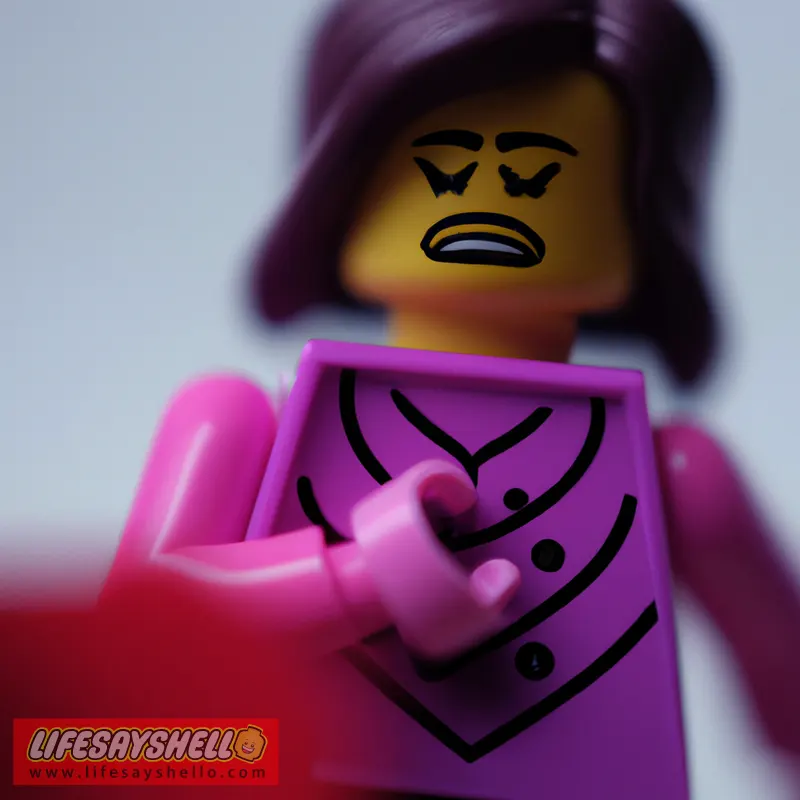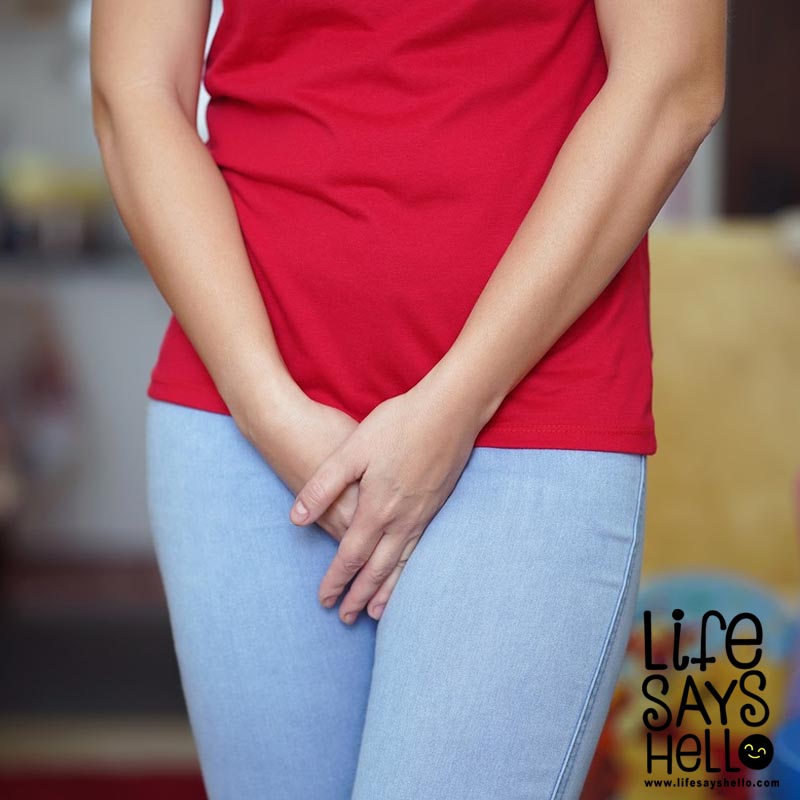Why Is My Breast Hurting? 9 Common Causes of Breast Pain Explained

Breast pain can be annoying, worrying, and sometimes really painful. But it's also incredibly common among women. The good news is, most of the time breast soreness is caused by normal hormonal changes or other benign issues. Understanding the likely reasons your breast hurts can give you peace of mind or help you decide when to see a doctor.
Hormonal Fluctuations During Menstruation
Many women experience breast tenderness and swelling that follows their monthly menstrual cycle. The soreness often starts several days before your period begins. It tends to go away once your period starts, but some women continue to have breast pain throughout their periods.
The cause is shifting hormone levels. Estrogen levels rise in the first half of your menstrual cycle, causing fluid retention and breast tissue swelling. Progesterone peaks in the second half of your cycle, which can worsen breast tenderness. Once your period starts, hormone levels plunge and breast pain usually subsides.
Hormone Changes During Pregnancy
Breast pain is extremely common during pregnancy thanks to surging reproductive hormones like estrogen, progesterone, prolactin, and HCG. Sore or tender breasts typically start in the first trimester as your milk ducts expand.
Breast changes continue through pregnancy as your milk glands grow in preparation for breastfeeding. The areola darkens, nipples enlarge, and blue veins may be visible under your skin. Expect breast and nipple sensitivity or even severe breast pain during this time.
Hormonal Fluctuations During Puberty
Puberty brings many changes to a young woman's body, including breast growth. The rapidly shifting hormone levels that cause breast development often lead to breast soreness or tenderness.
It's normal for breast buds to be sensitive or even painful at times as the mammary glands grow larger. Sudden growth spurts during puberty can make breast pain worse. Usually it resolves as hormones stabilize.
Perimenopausal and Menopausal Hormone Shifts
Women in perimenopause and menopause experience fluctuating estrogen levels as ovarian function declines. Lower estrogen can cause breast pain or breast tenderness in the years leading up to menopause.
Some women have worse pain before their periods or ovulations during the menopause transition. Others develop breast pain despite no periods. Hormone replacement therapy can also provoke breast discomfort in some women.
Chest Wall Pain
Sometimes pain that seems to originate in the breast is actually coming from the chest wall - the area of muscle, fat, and bone protecting the heart and lungs. Issues with the chest wall can cause pain that feels like it's coming from the breast.
Causes of chest wall pain include strained chest muscles, inflammation of cartilage around the breastbone or ribs, trauma from an injury to the chest, or even a bone fracture. Breathing, arm movement, and pressing on the chest will hurt with chest wall pain.
Breast Pain While Breastfeeding
It's common to have breast pain and sore nipples when you first start breastfeeding. Improper nursing techniques like a shallow latch or infrequent feeding can make breast pain worse. Engorgement when your milk comes in causes swelling and throbbing.
Blocked milk ducts make a section of the breast swollen, red, and extremely painful. Mastitis, a breast tissue infection, leads to flu-like aches, swelling, warmth, and redness. But with care and treatment, nursing pain usually fades.
Fatty Breast Tissue Pain
Some women simply have denser, less fatty breast tissue that is more prone to swelling and pain from hormonal changes. Lumpy and nodular breast tissue hurts more readily than smooth, evenly distributed fatty tissue.
There are no dangerous implications, but these breast tissue differences mean some women always have more bothersome cyclic breast pain. Wearing well-fitting bras and limiting salt and caffeine may help ease discomfort.
Breast Cysts
Breast cysts are fluid-filled sacs that can form in the breasts. They feel like soft, tender lumps within the breast tissue. Cysts can grow and cause swelling and breast pain, especially right before your period.
Cysts are benign and don't raise cancer risk. But recurrent cysts can be drained to relieve pain. Some supplements like evening primrose oil may help prevent cysts from recurring. Birth control pills can also help through regulating hormones.
If a cyst feels firm or solid, doesn't fluctuate in size, or persists despite treatment, it should be examined by a doctor. Solid lumps require imaging tests to confirm they are benign. Any suspicious lumps should be promptly evaluated.
Fibrocystic Breasts
Fibrocystic breast changes cause lumpiness and areas of thickened breast tissue that can be tender and painful. This benign breast condition is very common, especially in women 30-50 years old.
Fibrocystic breasts become more bumpy and painful right before a period when hormones prompt fluid retention. Limiting caffeine, wearing supportive bras, and taking vitamin E may help ease discomfort.
Breast Infection (Mastitis)
Mastitis is an infection of the breast tissue that usually happens to breastfeeding women. It causes swelling, warmth, redness, and severe pain in part of the breast along with flu-like nausea, fatigue, and fever.
Mastitis requires prompt medical treatment with antibiotics. Draining the breast properly and correcting breastfeeding techniques will also help clear the infection. Abscesses sometimes form from untreated mastitis.
Breast Abscess
A breast abscess is a pocket of pus that develops when bacteria invade breast tissue. Abscesses cause a tender, swollen, warm lump in the breast. They develop when mastitis goes untreated and are serious breast infections.
Doctors will prescribe antibiotics to treat abscesses, but the pus usually has to be drained as well. This is done by needle aspiration or a minor surgical procedure. Prompt treatment helps prevent recurrence.
Breast Cancer
Most breast cancers do not cause breast pain, so pain alone is not a reliable symptom. But inflammatory breast cancer (IBC) does commonly cause breast pain and tenderness. IBC is a rare, fast-growing type of breast cancer.
See a doctor about any new breast lump, swelling, skin changes, or nipple discharge you notice. While pain and tenderness are not common signs of cancer, any unusual changes need evaluation. Catching breast cancer early offers the best prognosis.
When to Seek Medical Care for Breast Pain
You should make an appointment with your doctor if:
- Breast pain is severe or persistent
- Pain remains after your period ends
- Only one breast hurts
- You find a new lump or nipple discharge
- Pain is accompanied by skin changes or swelling
- You have a fever, chills, or flu-like aches
Severe or prolonged breast pain warrants medical evaluation to identify the cause. Many benign conditions can cause breast pain, but any unusual symptoms or lumps need prompt investigation to rule out serious problems.
Conclusion: Breast Pain Typically Isn’t Serious
Breast pain is very common and usually not a major concern. Hormone fluctuations are the top cause of breast tenderness and swelling for most women. Chest wall issues can also seem like breast pain.
See your doctor if breast pain persists or worsens, if you find any suspicious lumps, or have other unusual symptoms. Though it's not the norm, inflammatory breast cancer can cause breast pain.
Don't panic about breast discomfort, but do get it evaluated if recommended. Knowing what's causing your breast pain provides peace of mind.




Comments